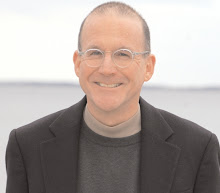Obama's concert yesterday, Martin Luther King's birthday today, Obama's inauguration tomorrow. The human instinct for patterns would tempt nearly any of us, I think, to see a shape in that constellation; of course the concert and the inauguration had to be where they are, but the place of the King holiday between them is pure serendipity. Any statistician would say so, and could prove it. But there's good reason, in this case, to indulge our instinctive "recognition" of that false pattern--one of the frequent cases in which belief in a fiction confers greater advantage (in this case, moral integrity) than the mere facts could do.
The great psychologist Martin Seligman has been finding the benefits of certain self-deceptions for decades. To anybody who hasn't read his Learned Optimism, I can't commend it passionately enough. One of his findings is that depressed people have more accurate perceptions, but the Pollyannas not only are happier but also get more done.
Given a congenitally depressive nature, when I hear King's speech my mind goes immediately to the tragedies that followed, especially the assassinations of JFK and of King himself, and in them I read a pattern of tragedy extending through all the years from 1963 in Dallas to this morning in Iraq; but then, reminding myself of Seligman, I can say, Okay, maybe so, but maybe, also, that long chapter ends today, and tomorrow in Washington Barack Obama turns the page to open a new one.
When King gave that speech, I had just turned sixteen, and was about to begin my sophomore year in high school--in Memphis, the city where less than five years later he would be murdered. Looking back, I see another pattern. I would find my moral philosophy first, crudely, in the Sunday school and church to which I was chained from infancy till my escape to the North; I would find it more fully realized in "I Have a Dream" and in the death of its creator; and years later I would see that the unearthly faith of King and the cruel tragedy of his death rhyme well with the pattern I have come to love most in Italian renaissance paintings: the serene stillness of the Madonna coexisting, and coincident in time, with the irreduceable, incomprehensible evil of the Crucifixion. Are those real patterns, or just more self-helpfully illusory ones? Does it matter?
Now at last I can thank my father for so relentlessly hounding me to Sunday school and church, where my instinct for recognizing the pattern of coextensive good and evil took root. Or I could if he were alive. He has been dead for not quite four months. If he had made it to ninety-five (on November 26, 2008) I would still be crowing shamelessly to him about Obama, whom he didn't have much use for. (He was not precisely a bigot, but he was a white man from the Mississippi Delta, and only two generations of descent from slave owners.) I like to think that as so many other conservatives seem to have done lately, he might have come around a little toward believing in the dreams of Obama--which, Obama says, came from his father. That would have put me in a mood sufficiently grateful at last to thank my own father for helping me to be here in this moment of grace.
Subscribe to:
Post Comments (Atom)



No comments:
Post a Comment